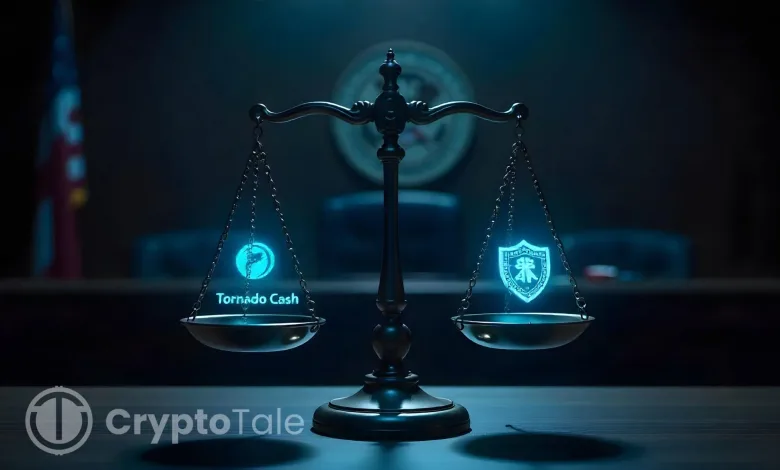DOJ Backs Off Dragonfly Probe in Tornado Cash Case

- DOJ reverses course, confirms Dragonfly Capital is not a target in Tornado Cash probe.
- Roman Storm’s trial continues, with privacy rights and open-source liability hanging in balance.
- Legal pressure on crypto VCs could reshape the future funding of privacy and blockchain tools.
The U.S. Department of Justice has backed off potential charges against Dragonfly, a venture firm tied to Tornado Cash. This shift came after Friday’s court statements stirred strong backlash from crypto and tech leaders. The DOJ has now clarified that Dragonfly is not a target in its ongoing investigation.
Dragonfly had invested in PepperSec, the company behind Tornado Cash, in 2020. The firm emphasized that the investment supported legal open-source privacy tools. They also obtained legal opinions before proceeding, based on FinCEN’s 2019 guidance. Dragonfly disclosed full cooperation with authorities after receiving a DOJ subpoena in 2023.
From Speculation to Clarification
On Friday, the DOJ stated in open court that it was contemplating charges against Dragonfly for its Tornado Cash involvement. That comment sparked immediate concern among crypto investors and privacy advocates. Experts said the move risked a chilling effect on crypto innovation. In response, Dragonfly initially refrained from commenting publicly. Later, co-founder Haseeb Qureshi clarified that the DOJ had retracted its statement, with prosecutors acknowledging that Dragonfly was not under investigation and that earlier reports were incorrect.
Dragonfly claimed that the DOJ’s initial court remarks appeared aimed at preventing Tom Schmidt from testifying in defense of Roman Storm. Storm, a Tornado Cash co-founder, is currently facing trial for alleged money laundering violations. Dragonfly’s legal team argued that threatening charges against them was unprecedented and improper courtroom conduct.
The DOJ’s reversal now removes that threat. However, the implications for the Tornado Cash trial remain in focus. Legal experts say the outcome could reshape future rules around building and funding privacy software.
Broader Impact on Privacy Tech and VC Funding
The Dragonfly situation is now being watched for its potential to influence venture capital behavior. Privacy-focused crypto projects have long faced regulatory scrutiny. This case marks a rare instance where investors themselves faced possible legal consequences.
Dragonfly said it never operated Tornado Cash or had contact with illicit users. It maintained that its role was limited to funding the core development team, under proper legal advice. The firm also referenced the Van Loon v. Treasury case, which challenged the sanctioning of Tornado Cash by the U.S. Treasury’s OFAC.
Related: Tornado Cash Trial Drama: Mistrial Looms Amid Shaky Testimony
Support for Dragonfly surged after the DOJ’s court statements. Many in the crypto space warned that prosecuting investors would cripple innovation in blockchain privacy infrastructure. Dragonfly said if charges ever did arise, it would strongly defend its actions in court.
The trial of Roman Storm continues this week, with closing arguments expected soon. The outcome may define how the U.S. legal system treats open-source software developers. It may also impact how investors evaluate legal risk in backing privacy-enhancing technologies.
Legal analysts say the DOJ’s backtrack sends an important signal. It underscores that investor intent and the degree of project control are key factors in assessing legal liability. This development may bring added clarity for venture funds navigating blockchain regulations. The final judgment could decide how the U.S. balances innovation, privacy, and enforcement in the digital age.




